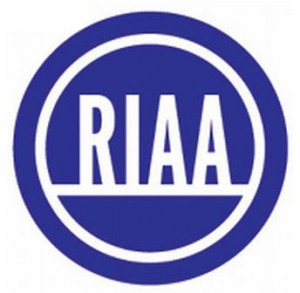Why Mass Copyright Lawsuits Must Stop
 Anyone who has listened to the Copyright 2.0 Show or read my write-up on the stock photo industry’s ongoing legal campaign, you probably know I’m no fan of mass litigation, such as what we have seen from the RIAA, the U.S. Copyright Group and, in the UK, ACS: Law.
Anyone who has listened to the Copyright 2.0 Show or read my write-up on the stock photo industry’s ongoing legal campaign, you probably know I’m no fan of mass litigation, such as what we have seen from the RIAA, the U.S. Copyright Group and, in the UK, ACS: Law.
Yet, when I talk to people about copyright, there’s often an assumption that I do. While I support the rights of creators to control their works I don’t approve of these mass litigation tactics and my reasons are many and varied. While I believe that litigation is sometimes necessary, my experience with these suits have been that they aren’t about protecting work, but about capturing headlines or, more recently, making money.
But I wanted to further explain my views on the matter, especially after a recent conversation on Twitter with DigCopyright made me realize just how strongly I felt about the issue.
Simply put, these lawsuits need to stop and the reasons are, when looked at closely, very clear.
How It Works
Though there are variations of the system out there, they generally follow the same pattern:
- Collect Information: Collect the IP addresses sharing unlawful content, either by entering a P2P network or getting information from a cyberlocker site.
- File Massive Lawsuits: Sue hundreds or even thousands of “Does”, meaning unnamed defendants, identifying them solely by their IP addresses.
- Obtain Personal Information: Using the subpoena process, force ISPs to turn over the personal information of the defendants.
- Send Settlement Letters: With information in hand, drop most or all the “Doe” claims and send out settlement letters making demands that are high enough to be profitable and discouraging, but low enough to be cheaper than litigating the case.
- Collect and Litigate: Collect money from those who pay up and either ignore those who don’t or litigate against some of all of them directly.
How successful the system is depends on who you ask and what cases you look at. However, the results seem to range from “of dubious benefit” to “complete failure”.
The RIAA did it for many years without much of a legal problem, even winning the two cases that made it to trial (though they both are on appeal). However, the process also wasn’t profitable, though it certainly was headline-grabbing. Still, they abandoned the strategy in favor of other tactics in 2008, after about five years and 35,000 lawsuits.
ACS:Law, however, has recently backed out of the mass litigation field after both a public outcry against them and a string of legal defeats. They’ve left the field broken and embarrassed, having been a failure in pretty much every regard, even facing a disciplinary board.
But while the failure of these lawsuits to do anything to stem the tide of piracy is a big part of why I don’t support these lawsuits, they aren’t the key reasons. There are other, more important problems with these campaigns and the strife that they cause.
Why They Must Stop
Considering that the “success” story from a legal standpoint, the RIAA, failed to make much of a dent in piracy with its campaign, we have over half a decade of understanding that the lawsuits don’t work for protecting content.
Yet, they continue.
The reason is that these lawsuits and shakedown campaigns can, if done well and without many legal problems, be very profitable. Whether it’s $1,000 per image as with the stock photo industry or $2,500 for downloading a movie, there is money to be made shaking down alleged pirates.
This, in my view, is not what copyright enforcement is supposed to be about. Copyright is supposed to enable business models, not become the business model. This means enforcement is often necessary and important, including litigation, but it shouldn’t be a profit center.
But even discarding that qualm, there are many other reasons I am against these lawsuits, including:
- They Flare Up Tensions: Headlines about single mothers and teenagers being sued for copyright infringement doesn’t build up sympathy for copyright holders in general. People who might have supported more balanced enforcement measures are turned against copyright enforcement by these kinds of stories. This, in the long run, may lead to copyright legislation that may reduce
- They Are Often Wrong: When you file tens of thousands of lawsuits at once, some are bound to be misaimed. Considering how reliable IP addresses are for identification and the chain of events that has to happen from evidence collection to demand letter, this tactic, essentially, accepts that innocent people will be threatened and does little to mitigate against it.
- There Are Better Solutions: Though you might not be able to file takedown notices against traditional P2P networks, cyberlocker sites have surpassed bittorrent sites in popularity and most accept such notices. Even as firms file lawsuits over certain movies, I was able to find copies of them easily on locker sites that could be removed with a form letter.
- They Hinder Real Answers: The music industry has been taking some smart steps lately, including using “instant pop” to ensure songs are on sale the moment they are on the radio and creating a global music database to better enable legitimate businesses to operate. These tactics will do as much, if not more, than the lawsuits did to stop piracy. However, it is difficult to pursue such actions when resources and attention are tied up in a massive litigation strategy.
In short, when copyright holders go down the mass litigation path, since the RIAA showed clearly that it’s impact on piracy is negligible, they aren’t trying to stop piracy, but rather, try to get some money from it through the courts.
While I have no love for those who pirate content, suing them blindly does nothing to help build new business models or even grow the existing one. Instead, it’s trying to turn litigation into profit, something that does little to win new friends.
Bottom Line
While I support creators’ rights, including the right to sue for infringement when necessary, mass litigation tactics not only don’t work, but they are literally poisonous to the current copyright climate.
Real answers to the current copyright situation will involve a combination of legal, technological and business model advancements. You can’t simply sue your way to a better copyright climate, that will only make things worse.
On that note, the time is now for the content industries to stop seeking out only temporary gains that usually fail to materialize and start working more on long-term solutions. Digital piracy isn’t going away, but it can be minimized and industries can thrive alongside it.
Want to Reuse or Republish this Content?
If you want to feature this article in your site, classroom or elsewhere, just let us know! We usually grant permission within 24 hours.
